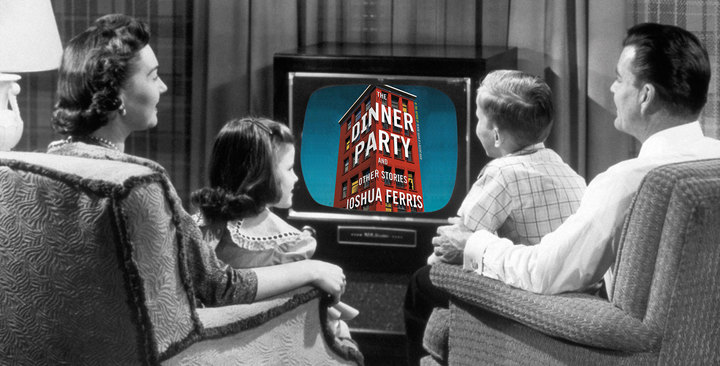Forget the Novel: It’s Time You Started Reading Short Stories
For a medium that lost its top spot on the cultural hierarchy a long time ago, it’s funny that the novel is still the go-to comparison for all prestige media. From TV shows like The Wire, Mad Men, and The Americans, to new podcasts like the recent hit S-Town, if something is really good, it’s like a novel. Even if fewer and fewer people are reading them, we still acknowledge their power. It’s surely an irony that isn’t lost on opera fans.
But at least novels have that going for them. Pity the short story. You’d think that with the rise of non-serialized prestige TV (think Black Mirror) there would be more acknowledgment of the once-proud genre. There is, after all, great power in consuming a controlled, narrative gem. Blame high school English classes, where short stories were taught as little literary mysteries, unlocked and graded on exams but never enjoyed. It’s time to rescue short fiction. And Joshua Ferris might just be the man to do it.
For one thing, Ferris, whose first collection of short stories, The Dinner Party and Other Stories, drops this month, seems like an author trapped in the wrong era. He speaks as though he was meant for a time when authors appeared on talk shows and spoke with elegance about literature and Important Things. His work, though, has always been urgently contemporary, in scope and subject matter. Then We Came to the End, his first and probably still most famous book, is like a literary version of The Office, with just as much comedy, pathos, and familiar despair. His stories are the same.
These moments of crisis and compassion, humanity and wit, are perfect episodes of some television series that doesn’t need serialization to make you want to keep coming back for more.
“This is kind of a book of floundering individuals who have never really found themselves and so it shouldn’t surprise anyone when, as we’re going through this small portion of their lives, that they should encounter crisis after crisis,” he says to me over the phone from New York.
But to say that the stories in the collection examine crisis points in modern life, while true, does Ferris — and the short story form — a disservice. It misses the point, which is: Ferris’s stories are fun, and funny, and cuttingly intelligent. They are bursts of humanity and walk-off-the-page characters — some, like the disappointing husband in the title story who has alienated his wife’s friends, are almost too recognizable — but, unlike most novels, have less than tidy endings.
And that’s why they are powerful. “We’re talking about a form of art and so therefore it sorts of reverts back to the reasons for the art itself, which is a broad answer; it is a distillation of life and articulation of the artist writing that life. And so stories just give it to you in a different dosage at a different pitch,” he says.
Ferris’s pitch is perfect. These moments of crisis and compassion, humanity and wit, are perfect episodes of some television series that doesn’t need serialization to make you want to keep coming back for more. They aren’t chapters, leading to some conclusion, they are moments, shading, changing, building lives.
Life has a conclusion, ultimately, like a novel. But living isn’t nearly as tidy. Short stories, especially these ones, live.










